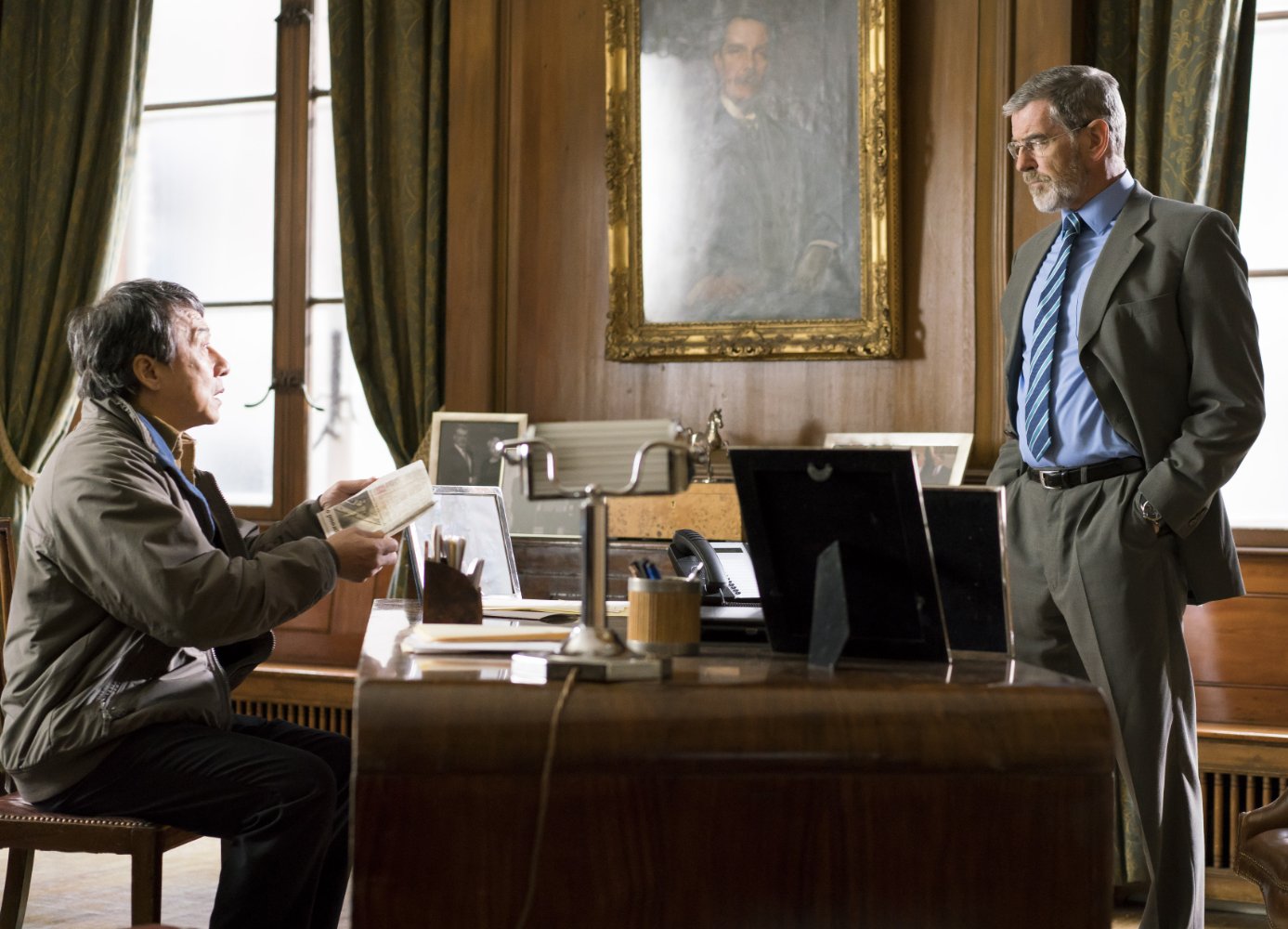The key to any good mystery or horror film is a sense of suspense, so of course that holds doubly true for a horror plot that hinges on a mystery. The key is to carefully tease out information to the audience so that they can get an inkling of what the inevitable big narrative twist is going to be, yet keeping enough information off the table that they aren’t quite able to figure it out. Desolation comes pretty dang close to making this kind of storytelling work, but unfortunately it plays a few too many cards too early, robbing suspense from a narrative that almost entirely relies upon it.
We open on a small New York town where Katie (Dominik García-Lorido) is working her job as a hotel clerk when an actor, Jay (Brock Kelly), comes to town to film a movie and the pair hit it off. Jay invites Katie to stay with him for a week in his Los Angeles apartment, and she agrees, only to have Jay suddenly leave her alone as he’s called on a last-minute filming. Left alone in a strange apartment in a city where she doesn’t know anyone, Katie starts to feel anxious, which isn’t helped by strange sounds coming from within the apartment building and ominously threatening figures roaming the halls. As the threats become more and more real, Katie is forced to confront her mental health and fight the desire to mortally end her psychological torment.
A lot of what Desolation has to offer is genuinely creepy. A little girl (Cailey Fleming) roams the halls, taunting Katie over an event from her past. A priest who lives upstairs (Raymond J. Barry) offers reassuring words with threatening undertones, undercutting any sense of comfort he might supposedly provide. The phones work sporadically, and the police only offer further abuse rather than assist. This all culminates into a fairly distressing commentary on a particular aspect of Hollywood life that would be too much of a spoiler to discuss further.
Alas, that twist is largely spoiled by a few too many hints too early on. I won’t discuss the particulars just in case some of you would prefer to experience it first hand, but the effect of knowing the twist through the second act rather than having it revealed during the third is that what should play out as morbidly curious instead feels more akin to a snuff film, drawing pleasure from a narrative about a woman’s suffering rather than using that suffering to a narrative or thematic end. There is something to be said for having a frame of reference broader than that of the protagonist, but Desolation pretends at hiding the ball when it has already waved the ball in front of your face.
Thankfully, this is redeemed somewhat by an agency-reclaiming third act, which painstakingly demonstrates what most audience members should have already figured out but still offers a satisfying conclusion to the arc it attempts to convey. Desolation sits in that uncomfortable territory of either being sunk by the bungling of its twist or saved by its execution aside from that twist, depending on where one’s priorities for cinematic satisfaction reside. Personally, I feel more positive than negative toward the experience, but how heavily I hedge that statement should indicate whether I think you need to rush to see this one.













